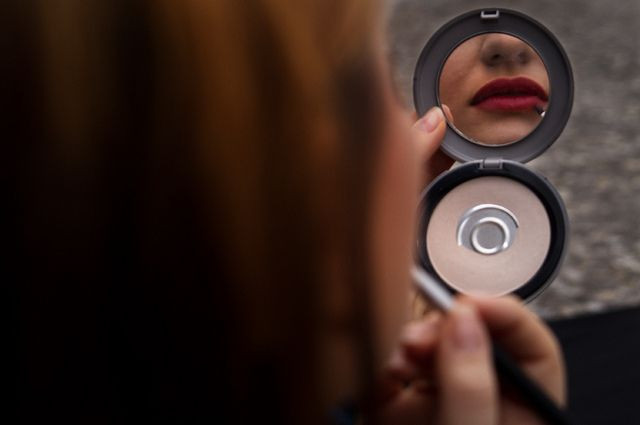Revlon Removes Toxic Ingredients From Beauty Products Following Petition By Environmental Working Group

Ask, and ye shall receive paraben-free beauty products: Revlon announced on Thursday they will no longer use two long-chain parabens and DMDM hydantoin, a chemical that releases formaldehyde. The change comes after the non-profit Environmental Working Group (EWG) presented a petition signed by more than 100,000 consumers.
TIME reported “long-chain parabens have been linked to endocrine disruption, while formaldehyde may cause cancer.” TIME added Revlon will also “reformat” a product that contained butylparaben. This particular paraben is used as an antimicrobial preservative in products, such as eye shadow and foundation.
“We are pleased that Revlon has acted to remove these toxic ingredients,” Heather White, EWG Executive Director, said in a press release. “Long-chain parabens and formaldehyde-releasing chemicals have no place in everyday cosmetic products. We applaud Revlon for taking these important steps and hope that other companies will follow Revlon’s lead by reformulating their products to remove chemicals that have been linked to serious health problems.”
The biggest win, White added, is the market-wide progress; Revlon is the latest to prove it’s possible for companies to make their products without hormone-disrupting and otherwise toxic ingredients. However, there are still a handful major cosmetic companies who still include harmful ingredients in their products.
Separate research from the EWG found “one in five of all (beauty) products contain chemicals linked to cancer; 80 percent contain ingredients that commonly contain hazardous impurities; and 56 percent contain penetration enhancers.”
Earlier this year, Spa Finder reported cleaner, organic beauty products would trend more than before in 2014. Since the skin, the body’s largest organ, absorbs 60 percent of what’s topically applied, people are making a point to be more careful of what they put on their bodies, be it make-up or body wash. Back in 2012, the Natural Products Association reported a 50 percent increase in the certification of new natural products.
Yet the quality of beauty products has been under a microscope for years now. For example, in 2010, No More Dirty Looks: The Truth About Your Beauty Products was released and categorized as a “wake-up call for all women who think that what you put on your body is not going to hurt you.” The book exposed thousands of chemicals in everything from nail polish and condition, including a round-up of the cleanest make-up there is.
Since then, the No More Dirty Looks blog keeps a running list of newly released (and clean) products for consumers to consider (among other healthy habits). Several magazines and blogs release annual clean beauty awards to keep with the consumer’s demand to know what’s in their beauty products — and which companies they can trust.
This trust-worthy list now includes Revlon. Who will be next?



























